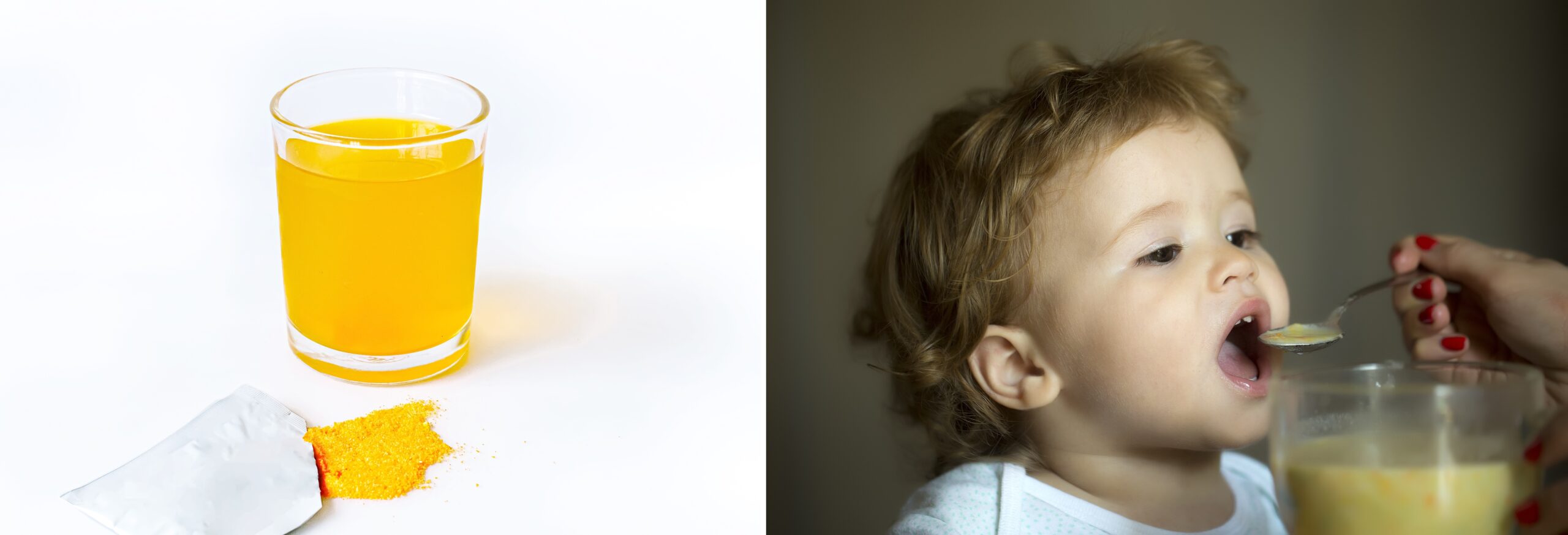DIARRHEA IN CHILDREN
Diarrhea is a condition of watery defecation which occurs 3 times or more in a day. If the amount of stool can be measured it is more than 10 grams per kilogram per day in infants or toddlers, and more than 200 grams per day in kids or adults.
Dr. Danai Adulyasak, our pediatrician at Bangkok Hospital Hua Hin shares that the causes of acute diarrhea in children are mostly infection. Other causes are other factors such as antibiotics, adverse reactions to certain drugs or eating certain types food. These infections can be transmitted directly from person to person and also from contaminated food or beverage with germs, stool. Direct handpicked food can also be the reason. The risks are increased by poor hygiene, immunodeficiency, taking immunosuppressant medications, malnutrition and infants less than 6 months of age who are not breastfed since birth. The social environments also play a role such as slum areas.
 Once children start having diarrhea, electrolyte replacement should start immediately before showing signs of dehydration, The oral rehydration salt (ORS) should be mixed properly according to the drug label. For toddlers, it is recommended to feed small amounts at a time, for example, 5 milliliters feeding every minute as rushing will be increasing the diarrhea symptoms. In case of breastfeeding and powdered milk feeding, it is advisable continue feeding and do not mix with water to dilute. For older children, it is recommended to eat easily digestible food such as porridge and soup and avoid high sugary food and drinks such as sweet drinks, fruit juice and oily food. It is not recommended to take medication to stop intestinal motility because the germs will remain in the intestines and if germs are invasive, it may become systemic and cause more problems.
Once children start having diarrhea, electrolyte replacement should start immediately before showing signs of dehydration, The oral rehydration salt (ORS) should be mixed properly according to the drug label. For toddlers, it is recommended to feed small amounts at a time, for example, 5 milliliters feeding every minute as rushing will be increasing the diarrhea symptoms. In case of breastfeeding and powdered milk feeding, it is advisable continue feeding and do not mix with water to dilute. For older children, it is recommended to eat easily digestible food such as porridge and soup and avoid high sugary food and drinks such as sweet drinks, fruit juice and oily food. It is not recommended to take medication to stop intestinal motility because the germs will remain in the intestines and if germs are invasive, it may become systemic and cause more problems.
 When to see a pediatrician – children younger than 6 months with diarrhea should be assessed by a pediatrician on hydration and possible complications. Children with underlying diseases such as heart, kidney diseases and ones with severe vomiting and cannot take ORS should be closely monitored. If the diarrhea are more frequent than 5-8 times in a day or having high fever and mucous bloody stool may be caused by invasive bacteria and can lead to sever dehydration. The symptoms of severe dehydration include drowsiness, irritability, thirst, parched lips and constant crying with very little tears.
When to see a pediatrician – children younger than 6 months with diarrhea should be assessed by a pediatrician on hydration and possible complications. Children with underlying diseases such as heart, kidney diseases and ones with severe vomiting and cannot take ORS should be closely monitored. If the diarrhea are more frequent than 5-8 times in a day or having high fever and mucous bloody stool may be caused by invasive bacteria and can lead to sever dehydration. The symptoms of severe dehydration include drowsiness, irritability, thirst, parched lips and constant crying with very little tears.
 The prevention of diarrhea in children is important to reduce the incidents and severity of the disease which consists of breastfeeding, vaccination against rotavirus, washing hands and drinking clean water. Breastfeeding is helpful in preventing infection in babies, also good at reducing the risks of diarrhea. It is recommended only breastfeeding at least 6 months. For vaccination against rotavirus, which is a weakened live virus vaccine, it has been proven to reduce the rate of hospitalizations and mortality. Moreover, it is important to wash hands before and after touching food and using the toilet. The cleaning of baby bottles and silicone nipples is also as important.
The prevention of diarrhea in children is important to reduce the incidents and severity of the disease which consists of breastfeeding, vaccination against rotavirus, washing hands and drinking clean water. Breastfeeding is helpful in preventing infection in babies, also good at reducing the risks of diarrhea. It is recommended only breastfeeding at least 6 months. For vaccination against rotavirus, which is a weakened live virus vaccine, it has been proven to reduce the rate of hospitalizations and mortality. Moreover, it is important to wash hands before and after touching food and using the toilet. The cleaning of baby bottles and silicone nipples is also as important.
 “If a child has more diarrhea without improvement along with severe dehydration can lead to serious event. Children should be brought to a doctor immediately to receive appropriate treatments” Dr. Danai said.
**************************************************************************
For more information and booking an appointment, please contact :
Tel: 032-616-883 (8.00 – 17.00 hrs.) Pediatric Clinic, 3rd floor
Tel. 032-616-800 Call Center, Bangkok Hospital Hua Hin
Line : @bangkokhuahin or https://lin.ee/5tso2l0
“If a child has more diarrhea without improvement along with severe dehydration can lead to serious event. Children should be brought to a doctor immediately to receive appropriate treatments” Dr. Danai said.
**************************************************************************
For more information and booking an appointment, please contact :
Tel: 032-616-883 (8.00 – 17.00 hrs.) Pediatric Clinic, 3rd floor
Tel. 032-616-800 Call Center, Bangkok Hospital Hua Hin
Line : @bangkokhuahin or https://lin.ee/5tso2l0
 Once children start having diarrhea, electrolyte replacement should start immediately before showing signs of dehydration, The oral rehydration salt (ORS) should be mixed properly according to the drug label. For toddlers, it is recommended to feed small amounts at a time, for example, 5 milliliters feeding every minute as rushing will be increasing the diarrhea symptoms. In case of breastfeeding and powdered milk feeding, it is advisable continue feeding and do not mix with water to dilute. For older children, it is recommended to eat easily digestible food such as porridge and soup and avoid high sugary food and drinks such as sweet drinks, fruit juice and oily food. It is not recommended to take medication to stop intestinal motility because the germs will remain in the intestines and if germs are invasive, it may become systemic and cause more problems.
Once children start having diarrhea, electrolyte replacement should start immediately before showing signs of dehydration, The oral rehydration salt (ORS) should be mixed properly according to the drug label. For toddlers, it is recommended to feed small amounts at a time, for example, 5 milliliters feeding every minute as rushing will be increasing the diarrhea symptoms. In case of breastfeeding and powdered milk feeding, it is advisable continue feeding and do not mix with water to dilute. For older children, it is recommended to eat easily digestible food such as porridge and soup and avoid high sugary food and drinks such as sweet drinks, fruit juice and oily food. It is not recommended to take medication to stop intestinal motility because the germs will remain in the intestines and if germs are invasive, it may become systemic and cause more problems.
 When to see a pediatrician – children younger than 6 months with diarrhea should be assessed by a pediatrician on hydration and possible complications. Children with underlying diseases such as heart, kidney diseases and ones with severe vomiting and cannot take ORS should be closely monitored. If the diarrhea are more frequent than 5-8 times in a day or having high fever and mucous bloody stool may be caused by invasive bacteria and can lead to sever dehydration. The symptoms of severe dehydration include drowsiness, irritability, thirst, parched lips and constant crying with very little tears.
When to see a pediatrician – children younger than 6 months with diarrhea should be assessed by a pediatrician on hydration and possible complications. Children with underlying diseases such as heart, kidney diseases and ones with severe vomiting and cannot take ORS should be closely monitored. If the diarrhea are more frequent than 5-8 times in a day or having high fever and mucous bloody stool may be caused by invasive bacteria and can lead to sever dehydration. The symptoms of severe dehydration include drowsiness, irritability, thirst, parched lips and constant crying with very little tears.
 The prevention of diarrhea in children is important to reduce the incidents and severity of the disease which consists of breastfeeding, vaccination against rotavirus, washing hands and drinking clean water. Breastfeeding is helpful in preventing infection in babies, also good at reducing the risks of diarrhea. It is recommended only breastfeeding at least 6 months. For vaccination against rotavirus, which is a weakened live virus vaccine, it has been proven to reduce the rate of hospitalizations and mortality. Moreover, it is important to wash hands before and after touching food and using the toilet. The cleaning of baby bottles and silicone nipples is also as important.
The prevention of diarrhea in children is important to reduce the incidents and severity of the disease which consists of breastfeeding, vaccination against rotavirus, washing hands and drinking clean water. Breastfeeding is helpful in preventing infection in babies, also good at reducing the risks of diarrhea. It is recommended only breastfeeding at least 6 months. For vaccination against rotavirus, which is a weakened live virus vaccine, it has been proven to reduce the rate of hospitalizations and mortality. Moreover, it is important to wash hands before and after touching food and using the toilet. The cleaning of baby bottles and silicone nipples is also as important.
 “If a child has more diarrhea without improvement along with severe dehydration can lead to serious event. Children should be brought to a doctor immediately to receive appropriate treatments” Dr. Danai said.
**************************************************************************
For more information and booking an appointment, please contact :
Tel: 032-616-883 (8.00 – 17.00 hrs.) Pediatric Clinic, 3rd floor
Tel. 032-616-800 Call Center, Bangkok Hospital Hua Hin
Line : @bangkokhuahin or https://lin.ee/5tso2l0
“If a child has more diarrhea without improvement along with severe dehydration can lead to serious event. Children should be brought to a doctor immediately to receive appropriate treatments” Dr. Danai said.
**************************************************************************
For more information and booking an appointment, please contact :
Tel: 032-616-883 (8.00 – 17.00 hrs.) Pediatric Clinic, 3rd floor
Tel. 032-616-800 Call Center, Bangkok Hospital Hua Hin
Line : @bangkokhuahin or https://lin.ee/5tso2l0